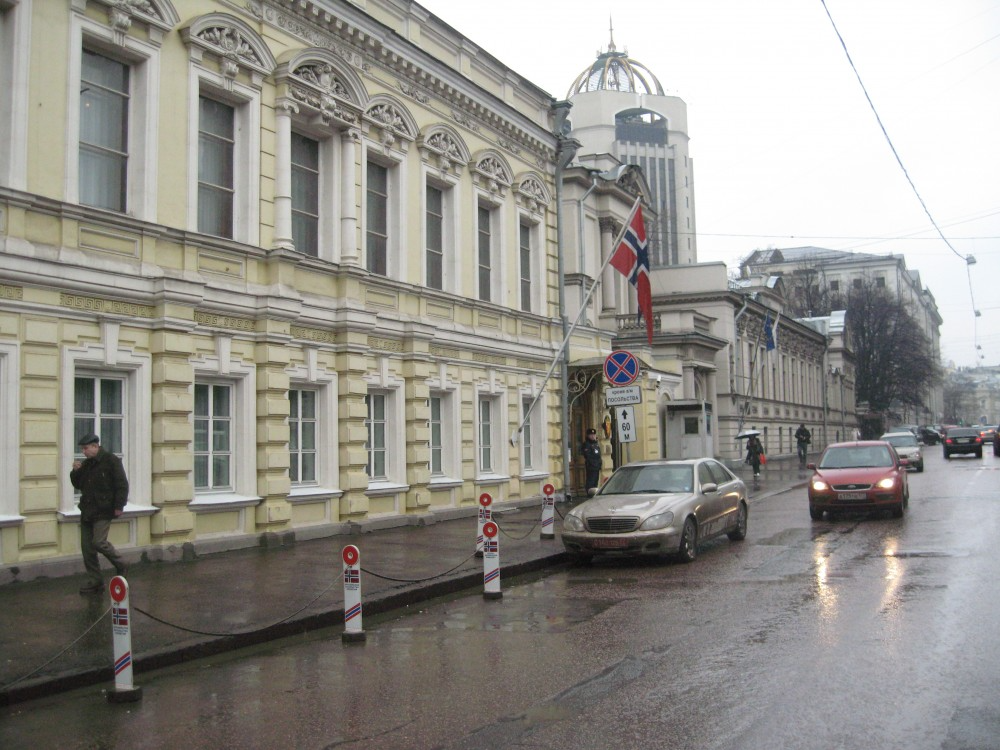Moscow called Oslo “unfriendly.” Now, it has become “very unfriendly”

Norway is the only of Russia’s neighboring countries that is included in a list of states with a so-called unfriendly line against Russian diplomatic offices.
The Nordic country that shares a 198 km long border with Russia, and that for three decades ardently sought to improve cross-border relations, is now officially among Moscow’s most “unfriendly” states.
On the 3rd of August, the Russian government informed that Norway had been included in a list of countries that conduct “unfriendly actions aimed against Russian diplomatic and consular representative offices abroad.”
From before, Norway was on Moscow’s more general “unfriendly” list along with all EU countries, the UK, USA, Japan and 18 more states.
It is not clear what is the direct motivation for Moscow’s latest escalation against Oslo. But the Nordic country is a strong supporter of Ukraine and has supplied Kyiv with major deliveries of weapons and aid. Norway has also contributed with major humanitarian aid and will allocate several billion euro for rebuilding efforts in the country.
Norway is the only country on the list with a direct land border to Russia. It includes also the USA, Czechia, Greece, Denmark, Slovenia, Croatia and Slovakia.
Limiting permission to hire local staff
According to this week’s decree, Norwegian diplomatic offices in Russia will from now on have strongly limited permission to hire local staff. No more than 27 work contracts will can be concluded with locals, which means that Norway might have to dismiss several of its employees engaged in services such as transportation, cleaning and consular work.
Norway today has a general consulate in St.Petersburg in addition to its embassy in Moscow. Previously, it also had a general consulate in Murmansk. It is believed that about 18 diplomats are based in the country, of them 2-3 in St.Petersburg.

Russia, on the other hand, has general consulates in Kirkenes and Barentsburg (Svalbard), in addition to the Oslo embassy. It is not clear how many diplomats are based at the offices. But the number was significantly reduced following Norway’s recent expulsion of 15 intelligence officers that worked under diplomatic cover.
Russia soon responded with expelling ten Norwegian diplomats.
Norway had since the early 1990s invested big sums in efforts aimed at normalising relations with its eastern neighbor. Fisheries, search and rescue and the Barents Cooperation were among the priorities of Oslo and result were considered of great value for both countries.
Relations gradually soured as Russia turned increasingly dictatorial and ultimately collapsed following the full-scale invasion of Ukraine.
Norway continues to seek cooperation with Russia
The ruin of relations notwithstanding, Oslo remains among the countries with a relatively soft approach towards the current Russian dictatorship. The border between the country remains open to Russian travellers, and Russian fishing vessels are still allowed to operate in three of the north Norwegian seaports.
Norway also continues to seek cooperation with Russia in the field of border management, fisheries and Arctic search and rescue.
Norwegian Prime Minister Jonas Gahr Støre used to nurse a close relationship with Russia’s Sergei Lavrov. In a recent newspaper column, Støre strongly condemns Russia and its war against Ukraine and highlights support for allied efforts to strengthen defence. At the same time, the prime minister argues that he today “does not see any concrete and direct military threat [against Norway] following Russia’s attack on Ukraine.”
The inclusion in the “very unfriendly”- list could ultimately make him change his mind.
Related stories from around the North:
Canada: Northern premiers say Canada can’t have Arctic security without infrastructure, The Canadian Press
China: Satellite imagery reveals construction progress on new Chinese Antarctic base, Eye on the Arctic
Denmark: Danish policy prioritizes low-conflict Arctic amidst Russian tensions, Eye on the Arctic
Iceland: Icelandic embassy suspends operations in Moscow, Eye on the Arctic
Norway: Svalbard’s travails in a changing Arctic, Blog by Marc Lanteigne
Sweden: US bombers land in northern Sweden for first time, Radio Sweden
United States: Biden welcomes Finland to NATO, meets with Nordic leaders, The Associated Press



